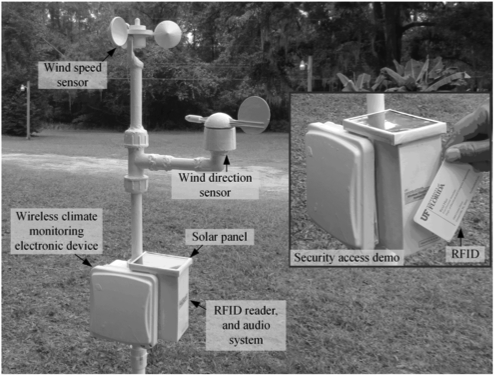Recently, University of Florida Professor William R. Eisenstadt visited Haiti as part of the UF’s U.S. Agency for International Development-funded Agricultural Research and Development Program project to assess local conditions and plan the purchase or building and placement of automated weather stations at four major agricultural research stations in Haiti. The weather stations’ data will also be useful for mosquito control in Haiti.

Eisenstadt has conducted research in the areas of test of analog and mixed signal circuits, design of on-chip wireless systems and IC interconnect and package characterization for many years. His recent work combines electronic design, packaging and embedded software design for wireless sensor systems in collaboration with leading researchers in entomology (mosquitoes, flies, etc.) and agriculture, power systems and biomedicine.
Current designs and prototypes include microclimate weather stations and wireless temperature sensors. Eisenstadt has worked with graduate students and his postdoc, Dr. Byul Hur, to put custom-made, automated weather stations and temperature poles in the U.S. Department of Agriculture (USDA) and in the Anastasia Mosquito Control District of St. Johns County in Florida.
In addition, Eisenstadt has designed and placed wireless temperature and humidity poles for fly control the USDA in Gainesville, Florida, and in the National Zoo in Washington, D.C.